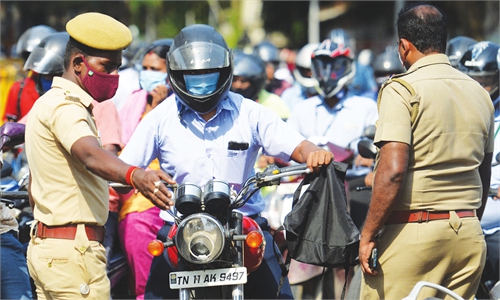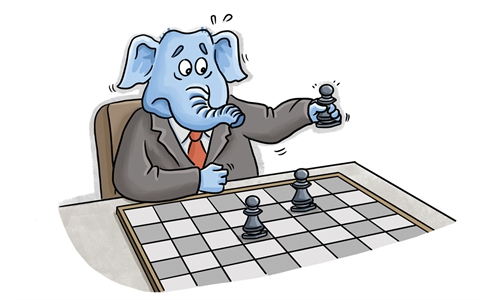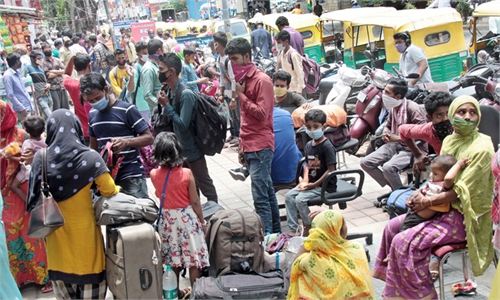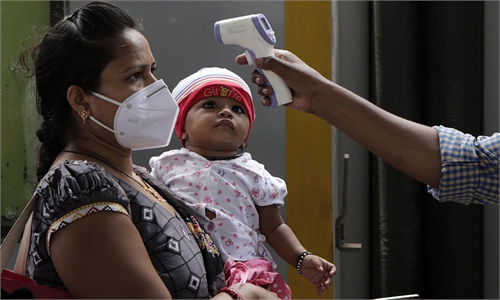‘No choice’ for struggling groups in pandemic double blow
Hunger stalks India’s poor
Rasheeda Jaleel lives in fear that she may not be able to feed her seven children as millions of Indian families are forced into poverty by a devastating new coronavirus wave.
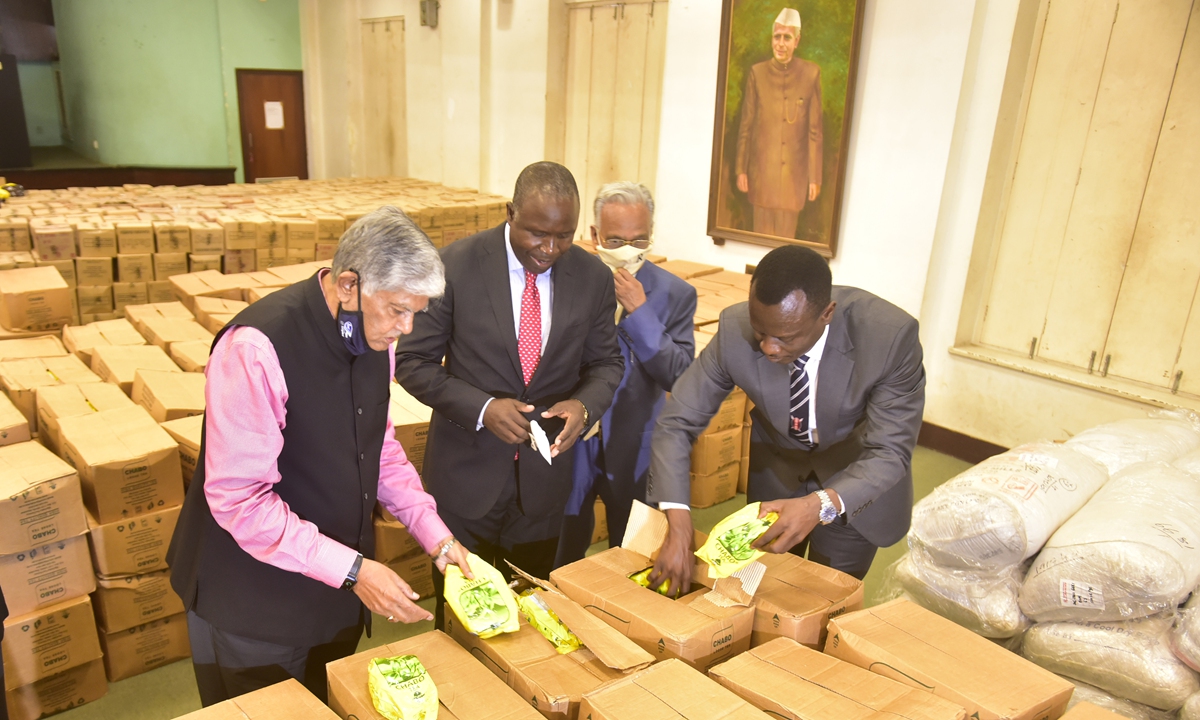
"When we are hungry and thirsty, I feel very helpless and worry, 'How am I going to survive like this?'" Jaleel told AFP as she made roti - flatbread - for the solitary meal in their tiny New Delhi flat.
"We manage with whatever my husband is able to earn. If it's not enough, I stay hungry so I can feed my children."
The coronavirus has killed 160,000 in eight weeks, overwhelmed hospitals and shut many businesses in India. Experts warn that another crisis is looming, with rising levels of hunger among poor Indians already reeling from a first lockdown in 2020. "It's a double crisis that the poor in the country are facing - there is the health crisis and there is also an income economic crisis," Anjali Bhardwaj from the Right to Food Campaign told AFP.
"We have had a huge health crisis unfolding... and many have had to spend their life savings on trying to provide medical aid to their families."
About 230 million Indians fell into poverty - defined as living on less than 375 rupees ($5) per day - in the first year of the pandemic, according to a study by Bangalore's Azim Premji University.
More than 7.3 million jobs were lost in April alone, according to the Centre for Monitoring the Indian Economy. That means more pain in a country where 90 percent of the workforce is in the informal sector with no social safety net, and where millions do not qualify for emergency government rations.
"A lot of people went into poverty last year, they went into debt, and... they had to cut back on food consumption," Associate Professor Amit Basole, one of the university study's authors, told AFP.
"So the second wave is coming on top of a very precarious, stressed situation."
Abdul Jaleel turned to peddling a rickshaw to feed his family after his construction work dried up during a fresh Delhi lockdown.
Previously up to 500 rupees ($7) a day, his income is now as little as 100 rupees.
"And on some days, I don't make anything," he said.
"As parents, we will have to make ends meet somehow, whether we beg, borrow or steal. We have no choice."
In 2020's lockdown, about 100 million people lost their jobs in India. After restrictions were lifted, around 15 percent failed to find employment by the end of 2020 - including 47 percent of female workers, the Azim Premji University study found.

Willy Bett, high commissioner of the African country to India, donates a consignment of 12 tonnes of food products from Kenya to the Indian Red Cross Society as part of its COVID-19 relief efforts, at Red Cross Society, Ballard Estate, on Friday in Mumbai, India. Photo: VCG
The 40-year-old, her husband Abdul Jaleel, 65, and the children already survive on just one meal a day."When we are hungry and thirsty, I feel very helpless and worry, 'How am I going to survive like this?'" Jaleel told AFP as she made roti - flatbread - for the solitary meal in their tiny New Delhi flat.
"We manage with whatever my husband is able to earn. If it's not enough, I stay hungry so I can feed my children."
The coronavirus has killed 160,000 in eight weeks, overwhelmed hospitals and shut many businesses in India. Experts warn that another crisis is looming, with rising levels of hunger among poor Indians already reeling from a first lockdown in 2020. "It's a double crisis that the poor in the country are facing - there is the health crisis and there is also an income economic crisis," Anjali Bhardwaj from the Right to Food Campaign told AFP.
"We have had a huge health crisis unfolding... and many have had to spend their life savings on trying to provide medical aid to their families."
About 230 million Indians fell into poverty - defined as living on less than 375 rupees ($5) per day - in the first year of the pandemic, according to a study by Bangalore's Azim Premji University.
More than 7.3 million jobs were lost in April alone, according to the Centre for Monitoring the Indian Economy. That means more pain in a country where 90 percent of the workforce is in the informal sector with no social safety net, and where millions do not qualify for emergency government rations.
"A lot of people went into poverty last year, they went into debt, and... they had to cut back on food consumption," Associate Professor Amit Basole, one of the university study's authors, told AFP.
"So the second wave is coming on top of a very precarious, stressed situation."
Abdul Jaleel turned to peddling a rickshaw to feed his family after his construction work dried up during a fresh Delhi lockdown.
Previously up to 500 rupees ($7) a day, his income is now as little as 100 rupees.
"And on some days, I don't make anything," he said.
"As parents, we will have to make ends meet somehow, whether we beg, borrow or steal. We have no choice."
In 2020's lockdown, about 100 million people lost their jobs in India. After restrictions were lifted, around 15 percent failed to find employment by the end of 2020 - including 47 percent of female workers, the Azim Premji University study found.
